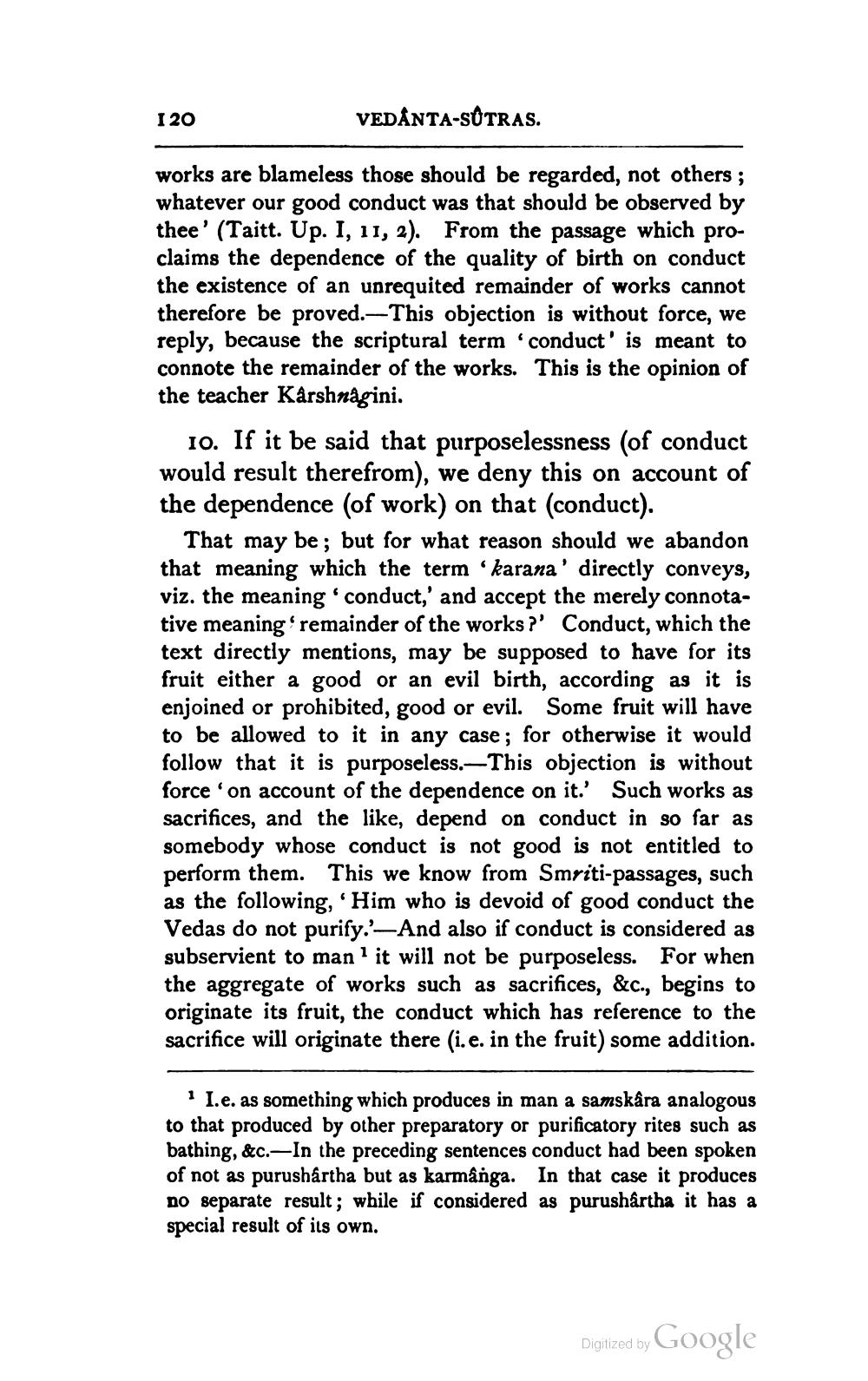________________
I 20
VEDANTA-SÚTRAS.
works are blameless those should be regarded, not others; whatever our good conduct was that should be observed by thee' (Taitt. Up. I, 11, 2). From the passage which proclaims the dependence of the quality of birth on conduct the existence of an unrequited remainder of works cannot therefore be proved.—This objection is without force, we reply, because the scriptural term 'conduct' is meant to connote the remainder of the works. This is the opinion of the teacher Kårshnagini.
10. If it be said that purposelessness (of conduct would result therefrom), we deny this on account of the dependence (of work) on that (conduct).
That may be ; but for what reason should we abandon that meaning which the term 'karana' directly conveys, viz. the meaning conduct,' and accept the merely connotative meaning remainder of the works?' Conduct, which the text directly mentions, may be supposed to have for its fruit either a good or an evil birth, according as it is enjoined or prohibited, good or evil. Some fruit will have to be allowed to it in any case; for otherwise it would follow that it is purposeless.—This objection is without force on account of the dependence on it.' Such works as sacrifices, and the like, depend on conduct in so far as somebody whose conduct is not good is not entitled to perform them. This we know from Smriti-passages, such as the following, 'Him who is devoid of good conduct the Vedas do not purify.'-And also if conduct is considered as subservient to man it will not be purposeless. For when the aggregate of works such as sacrifices, &c., begins to originate its fruit, the conduct which has reference to the sacrifice will originate there (i.e. in the fruit) some addition.
* I.e. as something which produces in man a samskåra analogous to that produced by other preparatory or purificatory rites such as bathing, &c.—In the preceding sentences conduct had been spoken of not as purushärtha but as karmånga. In that case it produces Do separate result; while if considered as purushärtha it has a special result of its own.
Digitized by
Digilzed by Google




